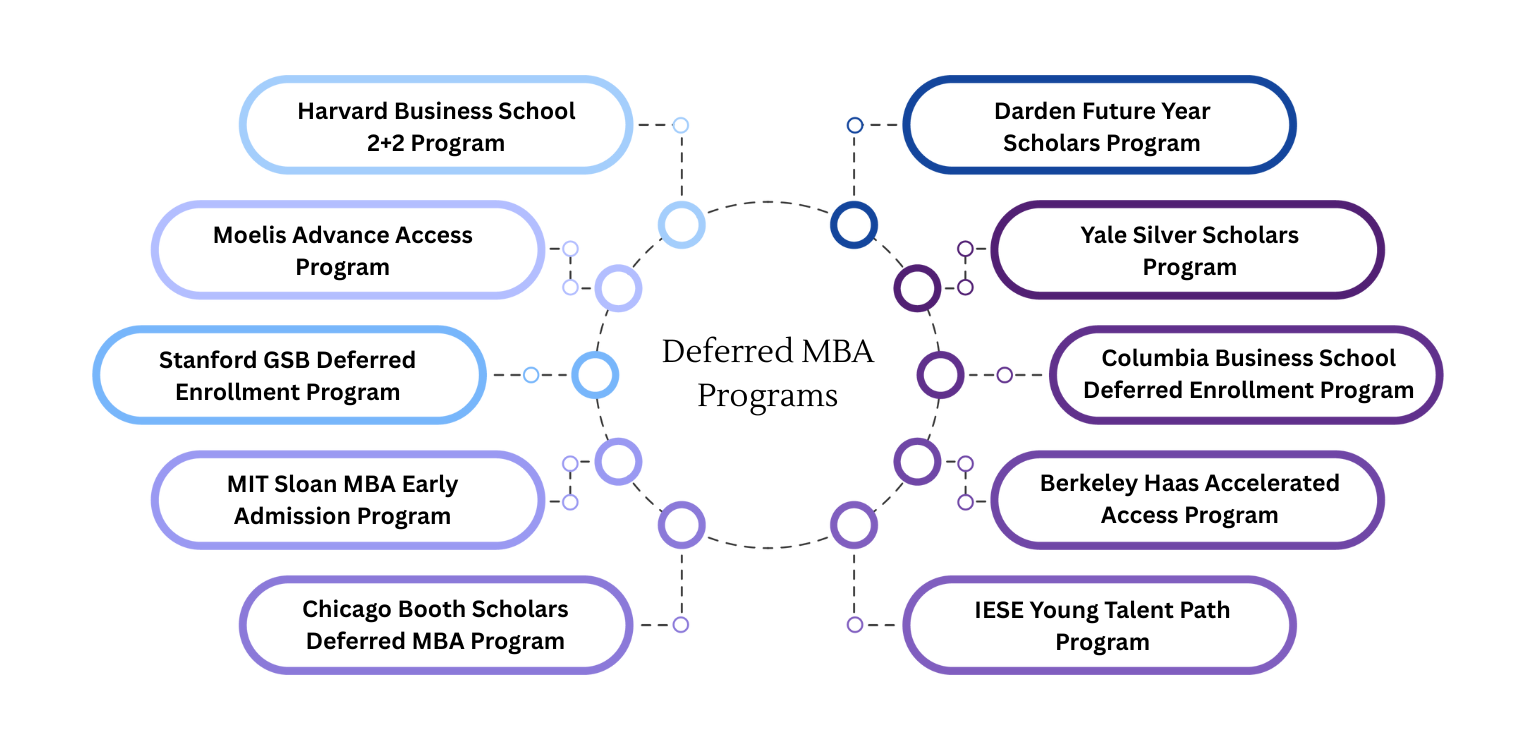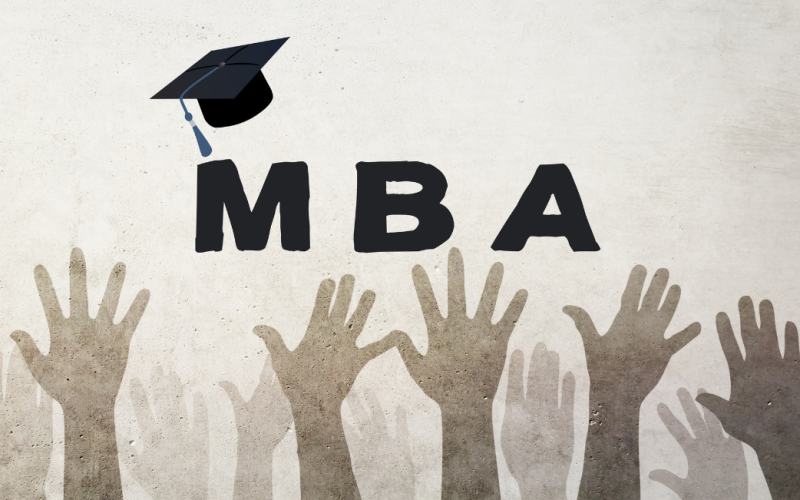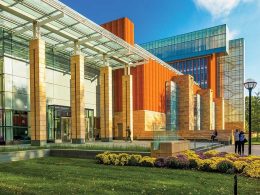- Deferred MBA programs: What are they?
- Deferred MBA vs. Traditional MBA
- Deferred MBA programs: Admissions Process
- Documents required for deferred MBA programs
- Who is a Deferred MBA program suited for?
- Is a deferred MBA worth it?
- Top Deferred MBA Programs in the USA
- Top Deferred MBA Program Outside the US
- Overview of Deferred MBA Programs
- Harvard Business School 2+2 Program
- Moelis Advance Access Program
- Stanford GSB Deferred Enrollment Program
- MIT Sloan MBA Early Admission Program
- Chicago Booth Scholars Deferred MBA Program
- Darden Future Year Scholars Program
- Yale Silver Scholars Program
- Columbia Business School Deferred Enrollment Program
- Berkeley Haas Accelerated Access Program
- IESE Young Talent Path Program
- Deferred MBA: Possible Challenges
- Conclusion
Do you wish to pursue an MBA but don’t have relevant work experience?
If you are in your final year of college and want to pursue an MBA, the deferred MBA program may be a good option.
Read on to learn more about what deferred MBA programs are, how they are different from traditional MBA programs, the top universities offering this option, the admissions process, eligibility requirements, and more.
Deferred MBA programs: What are they?
Deferred MBA programs allow you to apply to business schools during your final year of undergraduate or graduate school.
It allows you to reserve a seat before earning the required amount of work experience. Your admission is reserved for 2 to 5 years so you can take the required work experience and come back to join the regular MBA program.
Deferred MBA vs. Traditional MBA
A deferred MBA program opens doors to alternative career paths by getting a pre-admission without gaining industry experience. Here is how these programs differ from traditional MBA programs.
| Traditional MBA | Deferred MBA |
| Traditional MBA requires the applicants to have relevant work experience before admission. | A deferred MBA offers a chance to reserve a seat in an MBA program before gaining work experience. |
Deferred MBA programs: Admissions Process
While every management school has its own admission requirements, the standard procedure remains the same. The students need to submit a duly filled application form, along with the required documents.
Next, shortlisted applications are called for personal interviews. Selected candidates are then offered deferred admission.
Documents required for deferred MBA programs
- Academic records– It is mandatory to submit copies of academic transcripts. Since the student is pursuing the final year, unofficial transcripts can be submitted.
- Referral letter– Since the students do not have relevant work experience, a recommendation letter from an academic instructor is required.
- Essays – The application must be accompanied by at least 2 essays that state the leadership potential, future goals, and voluntary work if any.
- Exam score – The students must submit the GMAT/GRE scores along with the scores of English language tests taken. TOEFL/IELTS/PTE are mostly accepted by all colleges.
These documents must be accompanied by a professional resume.
Who is a Deferred MBA program suited for?
A deferred MBA program is best suited for graduating seniors or recent graduates from 3 or 4-year bachelor’s degree programs. This program allows them to secure their seat in a top MBA program without gaining the usual work experience.
However, seeking admission is not easy here due to the limited number of seats and fierce competition. The program attracts strong candidates from across the globe, so make sure your application stands out and is supported by strong recommendations and excellent essays.
Is a deferred MBA worth it?
A deferred MBA program is an excellent choice for students who have a clear vision of pursuing an MBA to take their career forward. Here are some benefits of a deferred MBA program:
1. Security: Knowing that you have a seat reserved in a top MBA program adds a sense of security and stability. These students can also expect better salary packages during their work experience tenure.
2. Opportunities for career advancement: With a deferred admission on your resume, you can leverage the reputation of your business school much before you start the MBA. The employers are also more inclined to hire you knowing that you have an offer letter from an elite business school.
3. Financial security: Securing a spot in the MBA program through deferred admission allows you to manage the potential education expenses. The students have ample time to earn and save the required funds, saving themselves from financial debts and the hassles of education loans.
4. Flexibility: A deferred MBA allows for more flexibility as compared to traditional MBA programs. Here the student decides when to join the business school, although it is mostly 2 years.
Top Deferred MBA Programs in the USA
Below are compiled a few deferred MBA programs offered by top international institutes, along with application deadlines and other key details.
| Business Schools | Deadlines | Deferral (Years) | Acceptance Rate |
| HARVARD’S 2+2 PROGRAM | April 22, 2026 | 3-4 | 8-10% |
| WHARTON MBA ADVANCE ACCESS PROGRAM | April 22, 2026 | 2-4 | 22% |
| STANFORD GSB DEFERRED PROGRAM | April 7, 2026 | 1-4 | 6% |
| MIT SLOAN MBA ( EARLY ADMISSION ) | April 17, 2026 | 2-5 | 11.5% |
| CHICAGO BOOTH SCHOLARS PROGRAM | April 2, 2026 | 2-5 | 22.5% |
| DARDEN FUTURE YEAR SCHOLARS PROGRAM | April 22, 2026 | 2-5 | NA |
| YALE’S SILVER SCHOLARS PROGRAM | April 14, 2026 | 3 | NA |
| CBS DEFERRED PROGRAM | April 15, 2026 | 2-5 | NA |
| BERKELEY HAAS ACCELERATED ACCESS | April 16, 2026 | 2-5 | NA |
Top Deferred MBA Program Outside the US
| Business Schools | Application Period | Deferral (Years) | Acceptance Rate |
| IESE Business School (Young Talent Path) | Dec 2025 – March 15, 2026. | Up to 2 years | 25% |
Overview of Deferred MBA Programs

Harvard Business School 2+2 Program
The Harvard Business School (HBS) 2+2 Program is a deferred admission process designed for current college students or full-time master’s degree students. Accepted applicants work for at least two years (up to four years) in a professional role before enrolling in the HBS MBA program. The program aims to attract high-potential individuals, with a particular focus on those from underrepresented backgrounds or industries, including entrepreneurship, technical roles, and operating companies. The application process mirrors the regular MBA application but has its own deadline.
Moelis Advance Access Program
The Moelis Advance Access Program offers a deferred enrollment path to Wharton’s MBA for students in their final year of undergraduate or full-time graduate degree programs. Accepted students, known as Moelis Fellows, gain 2-4 years of professional experience before matriculating into the full-time MBA program. The program encourages students from diverse academic backgrounds to pursue entrepreneurial ventures, nonprofit work, or gain experience in traditional business industries.
Stanford GSB Deferred Enrollment Program
Stanford’s Deferred Enrollment Program offers eligible candidates the opportunity to apply for an MBA now, take 1-4 years to gain professional experience, and then embark on their MBA journey. This program is designed for college seniors and final-year graduate students, providing a pathway to explore industries, develop skills, and enhance professional judgment before pursuing an MBA.
MIT Sloan MBA Early Admission Program
MIT Sloan’s MBA Early Admission is a deferred admission option for ambitious students who want to secure a spot in a future MBA class. Applicants apply now and gain 2-5 years of professional experience before starting their MBA. This program is designed to equip students with the skills and expertise needed to maximize their MBA experience.
Chicago Booth Scholars Deferred MBA Program
The Chicago Booth Scholars Program offers final-year undergraduate students the opportunity to secure admission to Booth’s MBA program before graduation, with the flexibility to defer enrollment for 2-5 years while gaining professional experience. This deferred MBA program allows students to explore their career options without the pressure of business school applications. Accepted candidates can choose between the Full-Time or Part-Time MBA formats and enjoy benefits such as access to Booth’s global network, career resources, and automatic consideration for merit-based scholarships
Darden Future Year Scholars Program
The Darden Future Year Scholars Program provides a unique opportunity for talented undergraduate and final-year master’s students to gain early admission to one of the world’s top MBA programs. By applying in their final year of study, students can secure their spot in the program and then take 2-5 years to gain professional work experience. This deferral period allows scholars to explore various career options, build their skills, and strengthen their leadership abilities before returning to Darden for their MBA. Scholars also enjoy early access to the Darden community, including networking opportunities and personalized career support, ensuring they are well-prepared for a successful MBA journey.
Yale Silver Scholars Program
The Yale Silver Scholars Program offers an exceptional opportunity for college seniors to pursue an MBA at Yale School of Management immediately after graduation. In this unique program, students first complete a year of core management curriculum, followed by one or more years of professional work experience. This extended work experience allows students to apply their learning in real-world settings, enhance their leadership skills, and gain a competitive edge in their careers. After their work experience, participants return to Yale to complete their MBA, taking electives that align with their career aspirations. The program is designed to equip students with the skills and network needed for a successful career path.
Columbia Business School Deferred Enrollment Program
Columbia Business School offers a Deferred Enrollment Program (DEP) for undergraduate students, providing them the opportunity to secure admission to the MBA program while still in college. Accepted students can defer enrollment for 2-5 years to gain professional work experience before beginning their MBA journey. The program allows for flexibility, letting students choose between a 16-month or 20-month MBA program upon their return. Benefits include early access to Columbia’s community, resources, and networking opportunities, alongside eligibility for fellowships and scholarships.
Berkeley Haas Accelerated Access Program
The Berkeley Haas Accelerated Access Program is a deferred MBA enrollment option for undergraduate seniors and graduate students in their final year of study. This program allows students to apply for the Full-time MBA program, gain conditional admission, and defer their enrollment for 2-5 years to gain professional work experience. During the deferment period, students are encouraged to seek employment that enhances their leadership skills and prepares them to contribute to the mission-driven community at Haas.
IESE Young Talent Path Program
The IESE Young Talent Path offers a unique deferred MBA program based in Europe, designed for final-year students and young professionals with up to two years of full-time experience. The program distinguishes itself by including a comprehensive boot camp in Barcelona, where candidates experience the life of an MBA student and work on real business projects. This pathway offers an exclusive opportunity for individuals looking to enhance their leadership potential and secure an MBA at IESE. The application process includes an online application, followed by an invitation to the Assessment Boot Camp, and, upon successful completion, pre-admission to the MBA program. Applications for the YTP 2026 intake will be accepted from December 2025 to March 2026.
Deferred MBA: Possible Challenges
While a deferred MBA offers numerous advantages, students should also consider the challenges:
1. Fierce competition: With limited seats, deferred MBA programs attract the best talent globally, making the admission process highly competitive.
2. Pressure to excel: Securing admission adds pressure to gain meaningful work experience and excel professionally to justify the deferred seat.
3. Financial planning: Although students have time to save for tuition, balancing savings with living expenses during their work tenure can be challenging.
4. Uncertainty in goals: At a young age, career interests may evolve. Committing to an MBA early might limit exploring other career paths.
5. Eligibility concerns: Deferred MBAs often cater to specific profiles. Students from non-traditional academic backgrounds may struggle to meet admission requirements.
Being aware of these challenges and planning ahead can help students make the most of their deferred MBA journey.
Conclusion
So far, we’ve explored the key factors involved in securing admission to a deferred MBA program. For students who have notable achievements but may feel unsure about their profiles, the journey toward a deferred MBA can seem daunting. This is where LilacBuds steps in as your trusted partner.
With expertise in end-to-end admission and application support, LilacBuds ensures that every aspect of your application is meticulously crafted. While online resources provide general insights, LilacBuds offers personalized profile evaluations and tailored guidance to maximize your chances of success. Let us help you confidently navigate the path to your dream deferred MBA program.

















